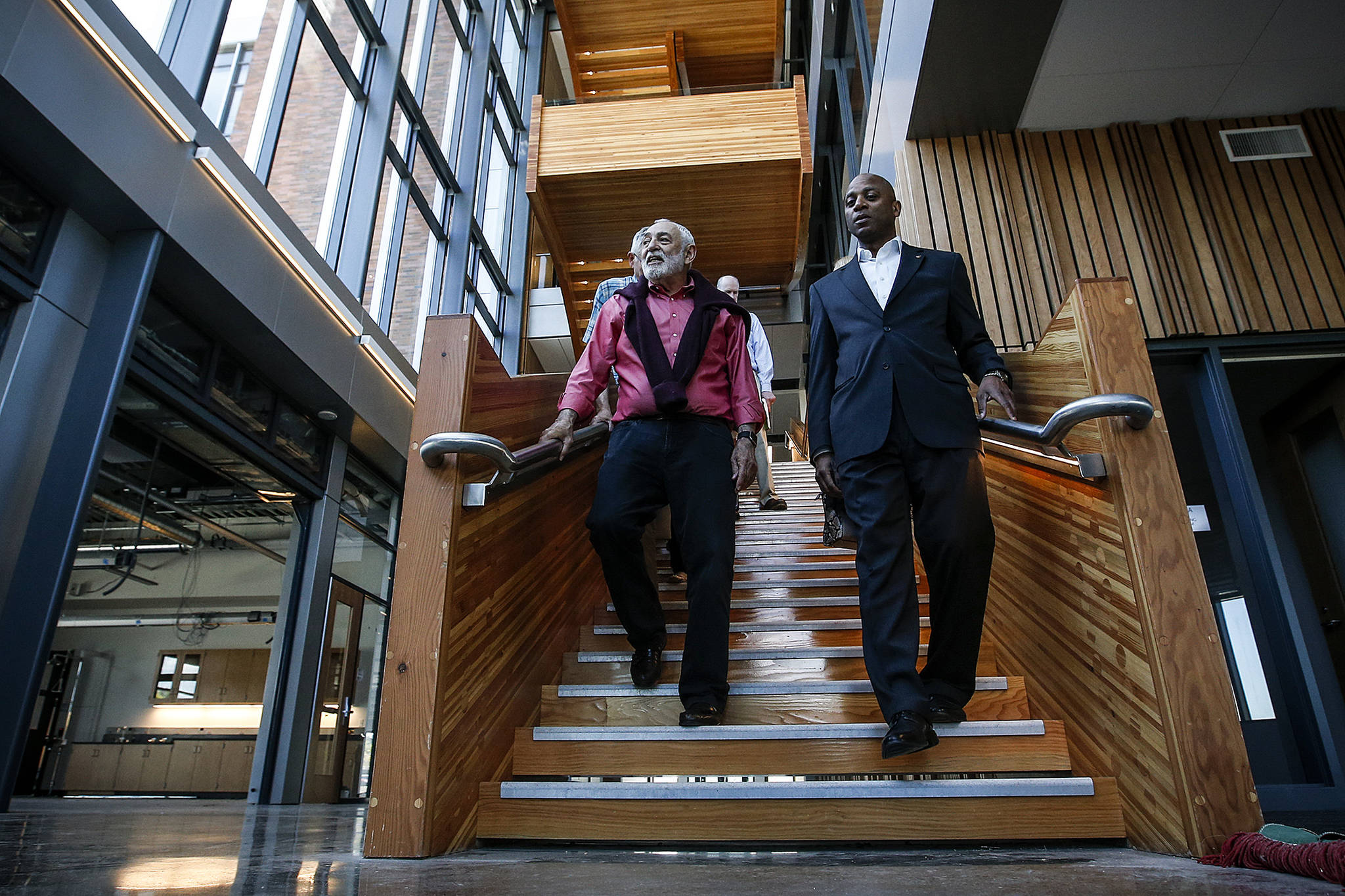By The Herald Editorial Board
For several years now, state lawmakers have rightly focused much of their work during legislative sessions to address the shortfall in public school funding, inequities among school districts and the over-reliance on school district levies to pay for basic education.
That effort continues this session with — we hope — increases needed for special education funding and greater flexibility for districts in seeking levy funding for needs beyond basic education. But lawmakers also have work ahead of them to better support the education that is now required for a growing majority after the high school diplomas are handed out each spring.
You know the number by now; employers in the state expect to hire nearly three-quarters of a million workers — 740,000 — during the next five years. Yet, only 1 in 5 of those jobs will be open to those with only a high school diploma. The rest — more than 590,000 jobs — will require some level of post-secondary education, from technical training and certification programs to two- and four-year degrees and beyond. Yet, only 30 percent of current high school students will go on to attain post-secondary credentials or degrees. To reach a level of 70 percent necessary to provide the skilled and educated workers needed for those jobs, a greater investment in post-secondary and higher education is necessary.
State support for higher education — including the state’s public universities and community and technical colleges, as well as for student financial aid that makes post-secondary achievement possible for many — has increased during recent budget sessions. Yet state funding lags below the levels seen before the Great Recession.
In 2008, before the recession, Washington state provided nearly $8,000 toward the education of each full-time college student, according to a 2017 report by the State Higher Education Executive Officers Association. By 2012, the support had dropped to $5,130 per full-time equivalent student, a cut that required students to pay an increasing share of tuition and other costs and forced other cuts across the system.
Since then, the state support has improved, to $6,641 in 2016 and $6,982 in 2017. Yet it remains 12 percent below the 2008 level of funding.
And Washington state has fallen far behind most other states in terms of higher education support; the same report finds Washington state’s per capita support in the bottom third of the nation. And for a state that prides itself on its booming economy and for its high-technology and advanced manufacturing employers, based on personal income, state spending on higher education falls to 10th lowest of the 50 states.
During visits last week with the editorial board, a coalition of higher education representatives — among them WSU Everett Chancellor Dr. Paul Pietre and UW President Ana Mari Cauce — outlined what they saw as higher education’s greatest needs: increased compensation for professors and instructional staff; funding that keeps tuition and other student costs affordable; and greater support for student financial aid, specifically scholarships and grants.
As public school teachers have seen recent increases in pay, their counterparts in high education have not seen similar increases, said Mike VanQuickenborne, president for the American Federation of Teachers local union and a member of Everett Community College’s teaching staff. The disparity in pay now risks a drain of quality professors who can find better compensated work in public schools or in other fields, he said. The loss of top quality faculty, echoed both Pietre and Cauce, could then drive students to attend colleges out of state.
To address the shortfall, the UW, for example, is requesting a 4 percent increase in compensation for faculty and professional staff and has asked that state provide 50 percent of such compensation raises in the future.
State lawmakers also need to address the gap in the scholarship and grant funding provided to low- and middle-income students, one that has only contributed to the growing reliance on student loans that has resulted in a total of $1.56 trillion in debt owed on student loans.
The state’s primary financial aid program, the State Need Grant, currently serves more than 68,500 students. But another 18,000 who qualified under the grant program’s financial and other requirements were denied that support. Of those who applied in Snohomish County’s legislative districts, grants were unavailable to between 22 percent and 28 percent of those who were eligible.
Legislation in the Senate — SB 5393 — seeks to eliminate that gap by renaming the State Need Grant as the Washington Promise Scholarship, supporting the scholarships as an entitlement program that would ensure aid to all who qualify. Support for that program and others, including the Opportunity Scholarship, Passport to College Promise for foster youths and state work study programs would increase access and affordability for students.
When adopted in 1889, the Washington state constitution recognized the importance of education to the future of the state and its residents, establishing “ample provision for the education of all children” as the state’s “paramount duty.”
If our economy is to grow and our citizenry is to thrive as constitutional delegates hoped 130 years ago, that paramount duty can no longer stop at a high school diploma.
Correction: An earlier version of this editorial misspelled UW President Ana Mari Cauce’s middle name and misstated her title.
Talk to us
> Give us your news tips.
> Send us a letter to the editor.
> More Herald contact information.

























